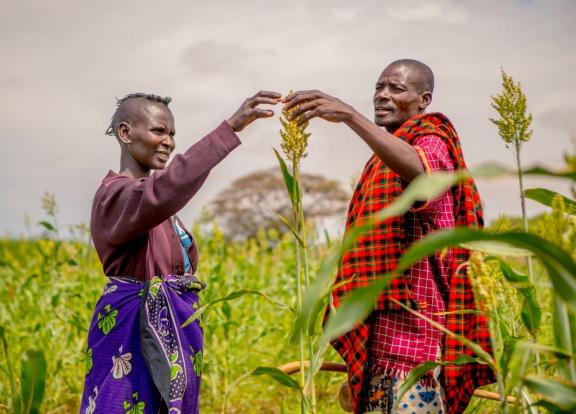
Climate change is a global crisis, but its effects are not equal. As temperatures and sea levels rise, the effects disproportionately impact the poorest and most marginalized communities USAID works to support every day. Climate and nutrition are linked in many ways, requiring a concerted effort to shape food systems to sustainably deliver healthy diets needed for optimal nutrition around the world.
In response to these global challenges, USAID launched a new Climate Strategy that will guide its work through 2030. This new Strategy takes a “whole-of-Agency” approach that calls on all corners of USAID to play a part in the response. Every USAID sector and Mission has a role to play in transforming global systems, including building resilience of food and health systems to respond to humanitarian crises and other disruptive impacts of climate change.
This Earth Day, USAID Advancing Nutrition further recognizes the need for nutrition to be part of the conversation on climate change. Learn more about what we’re doing to build resiliency of food systems and improve nutrition security around the world:
- Breastfeeding is climate smart. USAID Advancing Nutrition experts spoke at a Global Breastfeeding Collective and Infant Feeding in Emergencies Core Group event about how protecting and promoting breastfeeding is crucial to creating a more equitable, sustainable, and climate-friendly food system.
- The project’s Food Systems Toolkit supports USAID Missions and partners in putting a food systems approach into action. Users can better increase resiliency of food systems to improve nutrition and respond to the impacts of climate change.
USAID Climate Resources
- Visit the Climate Hub on Climatelinks to learn more about USAID’s new Climate Strategy.
- Read the strategic objectives of the new Climate Strategy:
- Strategic Objective 1: Targeted Direct Action - accelerate and scale targeted climate actions.
- Strategic Objective 2: Systems Change - catalyze transformative shifts to net-zero and climate-resilient pathways.
- Special Objective 3: Do Our Part - strengthen operations and approaches to programming to address climate change and further climate justice within USAID and our partner organizations.